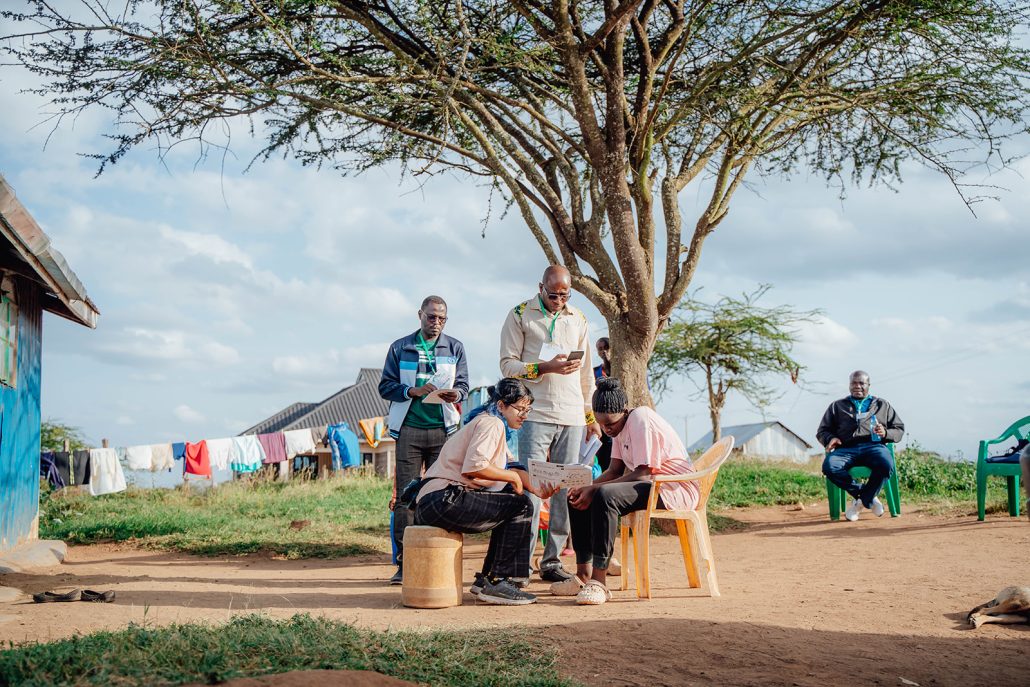In the sun-drenched landscapes of Kajiado, Kenya, a crucial gathering recently took place. Members of the People’s Action for Learning (PAL) Network, representing a vibrant global south movement, converged for an intensive training session in preparation for the 2025 International Common Assessment of Numeracy and Reading (ICAN-ICAR) assessment. The picture below captures a moment of this vital exchange, set against a backdrop of the communities at the heart of our mission and embodying the spirit of citizen-led change.

PAL Network is not just an organization; it’s a testament to the power of citizen-led initiatives. For years, this movement has championed the belief that understanding the state of education requires listening directly to the voices of the people most affected – children, parents, and communities. This philosophy underpins the very essence of Citizen Led Assessments (CLAs), a revolutionary approach to generating data on foundational learning.
In an increasingly data-driven world, the significance of citizen-generated data cannot be overstated. It provides a unique, ground-level perspective that complements traditional data collection methods. The Copenhagen Framework recognizes the critical role of such data in painting a comprehensive picture of development challenges and progress. The PAL Network, through its rigorous CLAs, contributes invaluable insights that are essential for evidence-based policy-making.
The upcoming ICAN-ICAR assessment is set to be conducted in 12 countries (Senegal, Mali, Kenya, Uganda, Tanzania, Mozambique, Botswana, Nicaragua, Mexico, Pakistan, Bangladesh and Nepal). Supported by 6,000 citizen volunteers, we are expecting to visit 2,949 Enumeration Areas, knock the doors of 59,000 households in rural and urban settlements and assess foundational literacy and numeracy of around 89,870 girls and boys. These numbers are impressive—but they only tell part of the story. Behind them lies a commitment to quality. Our assessment tools, recently vetted by UNESCO’s Institute of Statistics have been recognized for their robustness and reliability, acknowledging their capacity to provide accurate and actionable data on Foundational Literacy and Numeracy for children aged 5 to 16 years.
This validation underscores our commitment to “measure well” – ensuring that the data we collect is not only comprehensive but also of the highest quality. But beyond the methodologies and statistics, the most profound aspect of our work is the unwavering commitment to “measure all children” and “measure early.” We believe that every child deserves the opportunity to learn, and that means reaching those often left in the margins – children in emergency situations, children with disabilities, and out-of-school children. Their voices, their struggles, and their triumphs are paramount, and our assessments are designed to bring their learning progress to light.
Furthermore, we cannot overstate the importance of listening to the voices of parents and caregivers. They are the first educators, the constant champions, and the most insightful observers of their children’s learning journeys. Their perspectives are invaluable in understanding the nuances of educational challenges and in shaping effective solutions.
None of this would be possible without our citizen volunteers. They are the backbone of the PAL Network—community members, often parents themselves, who are trained to conduct assessments in homes, reaching children where they live and learn. But these volunteers do more than gather data. They start conversations. They share insights with families. They help parents see what their children know, and what more they need to thrive. This exchange transforms numbers into knowledge, sparking local action to improve learning. The ultimate goal of the PAL Network and the ICAN-ICAR assessment aligns directly with Sustainable Development Goal 4.1.1(a): ensuring that all children achieve a minimum proficiency level in reading and mathematics. Achieving this ambitious target demands an urgent and unprecedented collaboration between citizens and governments. The data generated through CLAs provides a powerful common ground, offering a shared understanding of the challenges and enabling collaborative efforts to address them.
As the PAL Network, we are deeply committed to producing rigorous and up-to-date evidence on foundational learning across Africa, Asia, and the Americas, always with the people’s perspective at the forefront. We strive to contribute to a future where quality education is a reality for all children, especially those most marginalized.
Now is the time. Let us collectively prioritize the learning of the foundations of reading and mathematics. We invite all stakeholders – governments, civil society, international organizations, and communities – to support the ICAN-ICAR assessment. Let us come together, embrace this vital evidence, and transform it into concrete actions that will truly improve learning outcomes for every child. The future of our children, and indeed our societies, partially depends on it. The people’s voice must not only be heard – it must drive the change we urgently need.
Armando Ali

